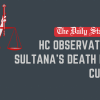The stakes are way high
Bangladesh, despite making some significant improvements in economy, is yet to establish an egalitarian society based on accountability and the rule of law. This is primarily due to the country's failure in building strong and sustainable democratic institutions that safeguard and oversee the symbiosis between the people and the government. It all happened at the expense of good governance, as highlighted in a study report made by the BRAC Institute of Governance and Development. Added to this dismal list are the two major squabbling political parties, the feud between which, on numerous occasions, has rendered the parliament ineffective. Parliamentary proceedings too have been seriously hampered by the persistent boycott of the opposition in the last four parliaments.
It is indeed disconcerting to note that whatever we have gained since the restoration of democracy, in a mass upsurge in 1990, is now at risk. The inefficacy of the Election Commission to hold free and fair polls was exposed during the 10th parliamentary election. More disturbing perhaps is the election that took place, where we witnessed the main opposition's attempt to thwart the election through coercive force, giving birth to anarchy and lawlessness.
Presently Bangladesh stands at a crossroads. Dysfunctional democracy coupled with misgovernance and lack of accountability is a recipe for disaster. Our economic and social advancements could be hampered, if not reversed, if the flourishing of effective democratic institutions continues to falter.

 For all latest news, follow The Daily Star's Google News channel.
For all latest news, follow The Daily Star's Google News channel. 








Comments